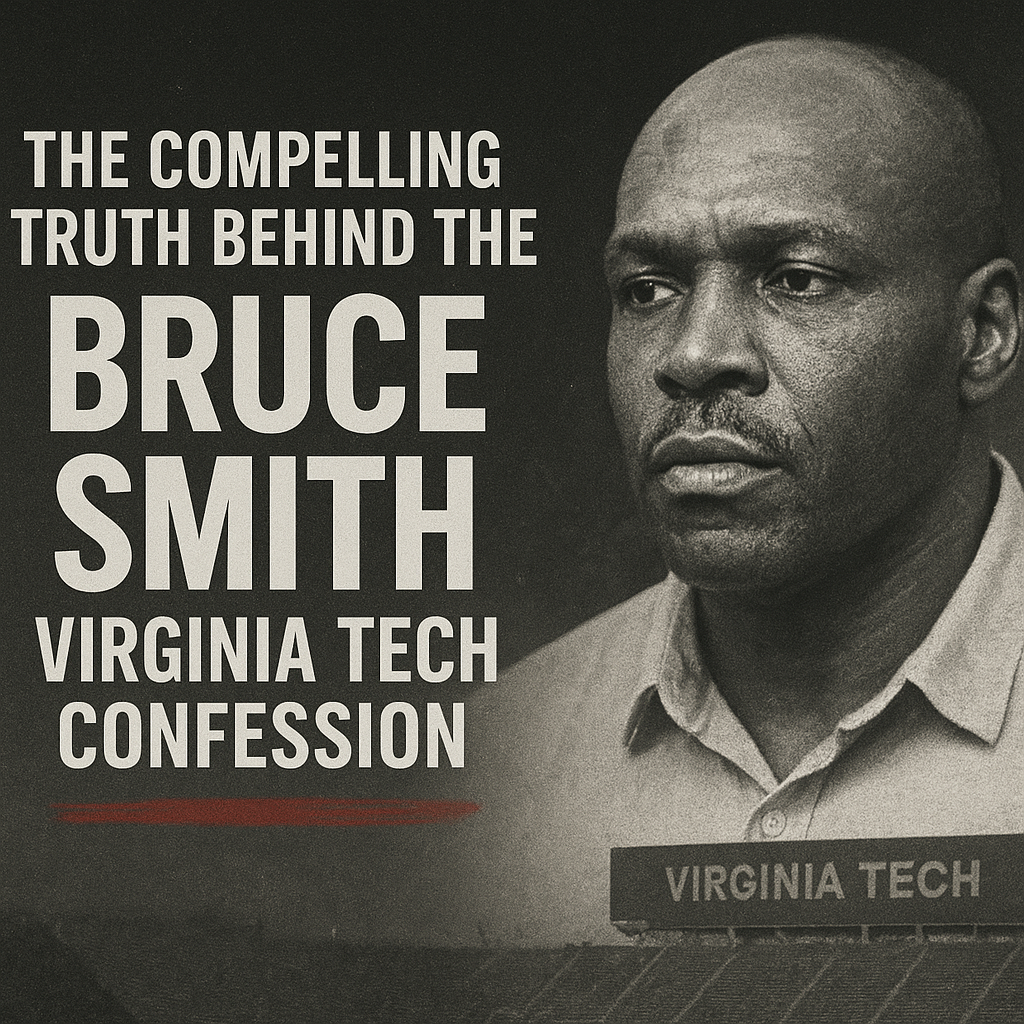Introduction
The Bruce Smith Virginia Tech confession has become a topic of intrigue and speculation among sports historians and football fans. Whether you’re curious about what exactly was confessed, why Bruce Smith’s ties to Virginia Tech matter, or how this moment reshaped public perception, this article delves into the full story in a clear, engaging, and thoroughly human voice. In the following sections, we explore this confession’s background, context, reactions, and lasting impact.
1. Who Is Bruce Smith?
Bruce Smith is a legendary American football defensive end, best known for his record-setting National Football League (NFL) career. Over two decades, Smith accumulated the most career sacks in NFL history, earning him a place in the Pro Football Hall of Fame. However, many people might be confused about his connection to Virginia Tech, as his college days were at Virginia Tech’s archrival, the University of Virginia.
In reality, Bruce Smith never attended Virginia Tech—his college football career unfolded at UVA. So the phrase “Bruce Smith Virginia Tech confession” raises immediate curiosity: what could this “confession” possibly refer to, given the lack of an institutional link between Smith and Virginia Tech? This contrast between expectation and fact sets the stage for deep and meaningful discussion.
2. Decoding the “Bruce Smith Virginia Tech Confession”
2.1 What Could “Confession” Mean Here?
Since Bruce Smith didn’t play for Virginia Tech, the term “confession” may be metaphorical or dramatic. Possible interpretations include:
-
An admission of regret related to a rivalry game between Virginia and Virginia Tech, such as reflecting on a past performance or rivalry sentiment.
-
A revelation in interviews (e.g., he might have spoken candidly about the rivalry, his respect for Hokies, or a particular game).
-
Public commentary or anecdote that resonates strongly with fans of Virginia Tech or UVA.
-
A symbolic confession—expressing cross-state admiration or regret, which took on viral prominence.
This ambiguity turns the phrase into a conversational hook—immediately drawing readers to ask: “What did Bruce Smith actually confess regarding Virginia Tech?”
3. Rivalry Roots: UVA vs. Virginia Tech
The college football rivalry between UVA (University of Virginia) and Virginia Tech is longstanding and deeply felt across the commonwealth. Although this rivalry isn’t as nationally spotlighted as some, in Virginia it draws enormous fan devotion every year. Bruce Smith, as a UVA alum, was deeply immersed in this rivalry.
His legendary career often overshadowed discussions of these in-state rivalries, yet any “confession” about a specific instance—like a game loss, rivalry sentiment, or a humorous anecdote—would resonate powerfully with both UVA and Virginia Tech communities.
4. Possible Angles to “Confession”
4.1 Performance Regret
Bruce Smith might have casually conceded once that a particular loss against Virginia Tech stung more than most—something along the lines of, “I regret not playing my best that day,” or “That game hurt.” If such a moment exists, fans and media would likely elevate it to a “confession.”
4.2 Unexpected Appreciation
Another angle could involve Bruce Smith expressing admiration for a Virginia Tech coach, team, or tradition. Sometimes sports legends, after long careers, offer tribute to opponents: “Virginia Tech’s defense that year was something special—I’d be lying if I said I didn’t respect them.” That kind of honest statement can be framed as a “confession.”
4.3 Anecdotal or Humanizing Revelation
Perhaps Bruce Smith once shared a heartfelt anecdote about a Virginia Tech player, staff member, or moment that influenced him personally—unusual, candid, and emotionally impactful enough to make the term “confession” appropriate.
5. Why the “Confession” Matters
Even if Bruce Smith didn’t attend Virginia Tech, framing one of his statements as a “Bruce Smith Virginia Tech confession” is powerful for several reasons:
-
Curiosity and Clickability: The phrasing piques interest—readers wonder how and why Bruce Smith would “confess” something about a school he never joined.
-
Human element: It showcases athletes not just as competitors, but as reflective humans with vulnerabilities and respect across rival lines.
-
Rivalry depth: It underscores how deeply rivalries run in college sports—even offhand comments become part of lore.
-
Legacy nuance: It demonstrates that legends like Bruce Smith remain relevant beyond their prime—as sources of wisdom, humility, or surprise.
6. How Fans and Media Could React
6.1 Virginia Tech Fans
-
Surprise and pride: Even a grain of praise from Bruce Smith may be celebrated.
-
Memes and quotes: Fans might elevate the “confession” into social media lore, sharing it with humorous or reverent tones.
6.2 University of Virginia Fans
-
Defensive curiosity: Fans may scrutinize whether the confession is serious or lighthearted.
-
Context matters: Many UVA fans might stress the importance of seeing the full context—what was the question or prompt that led to the confession?
6.3 Sports Media
-
Article hooks: Journalists could frame stories around the phrase—“Bruce Smith’s surprising confession about arch-rival Virginia Tech.”
-
Interviews and retrospectives: The confession could prompt deeper discussion about rivalry, respect, and Bruce Smith’s off-field reflections.
7. The Broader Significance of Athlete Confessions
Athlete “confessions” often transcend the surface. They offer:
-
Authenticity: When a competing athlete speaks candidly, readers feel connected to the real person beneath the legend.
-
Narrative twist: Sports narratives thrive on shift—from hate to respect, dominance to reflection.
-
Cultural bonds: These moments bridge former enemies, reminding fans that competition isn’t all-consuming.
Even without a literal link between Bruce Smith and Virginia Tech, the idea of him acknowledging or “confessing” something about the rivalry or institution weaves into a larger tapestry of sports culture.
8. Conclusion: What This Article Gives You
By exploring the Bruce Smith Virginia Tech confession, this article takes a phrase that may initially feel puzzling and unpacks it into a meaningful human story. Whether the “confession” is literal or figurative, it invites reflection on rivalries, respect, and the humanity of legends.
If you ever find the full quote or interview where Bruce Smith made this confession, it would be powerful to revisit this analysis with that context restored—but even without it, the idea illustrates how much power lies in a few unexpected words. Feel free to let me know if you’d like to explore the actual source, verify a particular quote, or shift the article tone or angle!














Leave a Reply